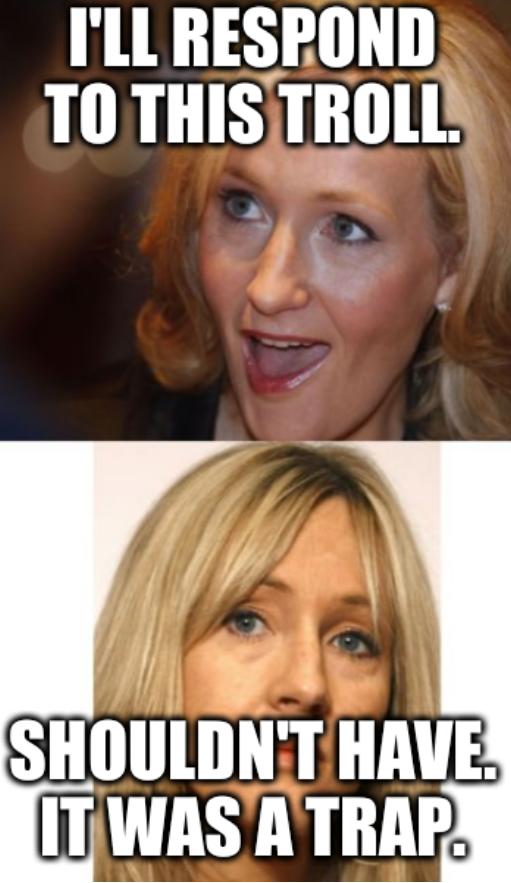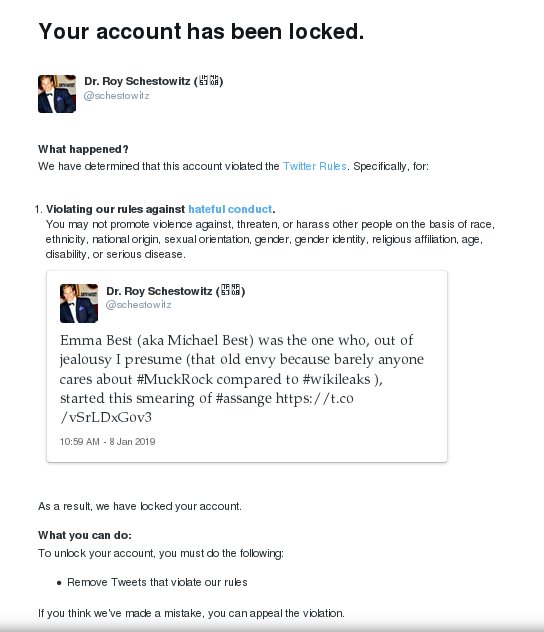

ABOUT 15 years ago I fed a really malicious troll (impersonator spreading libel using my own name) who had attempted to provoke me (and did). I then learned never to fall for their traps, designed (sometimes) to solicit a rude response, which can later be presented out of context and perhaps further distorted. When the media is in the business of selling ads and serving media barons, clickbait and 'cancel culture' are Big Business. This means that media oftentimes sides with Internet trolls and offers them a platform. It's not journalism, it's just "business"...
"Call it "digital blasphemy" or whatever; the net effect is less speech online -- for particular expressions of opinion/fact become impermissible -- and the erosion of free speech erodes software freedom as well (in the digital realm)."Now, in the context of Free software, there are similar types of traps. Sometimes people are lured into making remarks that can be spun as bigoted, racist, slanderous, chauvinistic and so on. There are several ways to work around these traps and desperate trolls go crazy when those traps are evaded, only to be repeatedly set up/attempted. Richard Stallman and Linus Torvalds have already fallen (or have been tricked into falling) down particular traps.
15 years ago I stopped responding to trolls (completely) and years later I stopped leaving comments in other sites, seeing that some people forged comments, posting them using my name (to incite people, to get these attributed to me and cause anger).
 These nasty tactics were used repeatedly against Wikileaks, and against Julian Assange in particular. So-called 'satirical' accounts with Assange's names were cited even by the BBC as though they were Assange's own (e.g. claiming he never takes a shower). Haven't we seen that all before? There are further traps these days designed to paint people as anti-Semitic, homophobic, transphobic and so on. People who aren't careful enough can easily fall into these traps without realising it. The "pronoun politics" aren't even well understood by most people; so any attempt to refer to people by name (or a gendered word) is a potential risk. Always refer to people by their role and employer, not their name (or pronoun of choice). It's a lot safer when people opportunistically attempt to distort of mischaracterise underlying motivations of criticism (e.g. of corruption, intolerance, war and so on).
These nasty tactics were used repeatedly against Wikileaks, and against Julian Assange in particular. So-called 'satirical' accounts with Assange's names were cited even by the BBC as though they were Assange's own (e.g. claiming he never takes a shower). Haven't we seen that all before? There are further traps these days designed to paint people as anti-Semitic, homophobic, transphobic and so on. People who aren't careful enough can easily fall into these traps without realising it. The "pronoun politics" aren't even well understood by most people; so any attempt to refer to people by name (or a gendered word) is a potential risk. Always refer to people by their role and employer, not their name (or pronoun of choice). It's a lot safer when people opportunistically attempt to distort of mischaracterise underlying motivations of criticism (e.g. of corruption, intolerance, war and so on).
In a healthier Internet it would also be possible to point out that someone changed a name used online (without getting abruptly suspended). It's a bit of an extension of the "War on Words" (wherein one gets in trouble for using rather innocuous words that might -- somehow -- "offend" somebody). Call it "digital blasphemy" or whatever; the net effect is less speech online -- for particular expressions of opinion/fact become impermissible -- and the erosion of free speech erodes software freedom as well (in the digital realm). ⬆